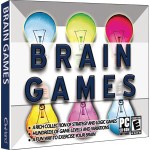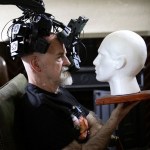Technology
I love 'I told you so' moments...Brain games don't do shit.
(this is totally going to come back and bite me in the ass though)
A number of months ago, I made a claim that paying for brain games was a waste of money. I got jumped on pretty hard for that claim - even though there isn't much evidence of their benefits except for perform the brain game itself better after a lot of practice (and maybe a couple other semi-related ones). I've been vindicated now by a meta-analysis of the relevant literature by Peter Snyder of the Brown med school.
Check this out from the press release:
Through a…
If you have problems getting Ubuntu Hardy Heron to work properly, I strongly recommend you check out Intrepid Ibex, the newest release. I'm having way fewer issues with it on my Toshiba Satellite notebook (if you are fine on Hardy Heron perhaps "upgrading" will mess you up). The UI also seems slicker. Not nearly as smooth as OS X, or even Vista, but a definite improvement. The Wubi Windows Installer makes it really easy to take it for a test drive without compromising your access to your standard OS, you don't have to go "all-in."
I only started using FriendFeed a few months ago because other people at the Science in the 21st Century workshop were documenting the conference on it. I quickly became a fan of the service, which not only added an extra dimension to the meeting, but has also been a continuing source of interesting material from the feeds of others.
If you're not familiar with it, FriendFeed is a service that aggregates online content from other sources, and puts out a feed of all your online activity. my feed, for example, includes blog posts, del.icio.us links, YouTube videos, Flickr pictures, and…
I have finally jumped on the bandwagon and started to use Twitter. I had avoided it because I couldn't understand why anyone would want to share the mundane details of their life with others, but am now beginning to see how it can be useful, and also to enjoy using it.
If you too are using Twitter, why not follow me (my username is @mocost), and engage me in an interesting conversation, share a link, or even tell me - if you really feel that you must - what you had for breakfast? Below is a mosaic of 40 people who are following me already.
div.mosaic img{ padding:0px !important; margin:0px…
I've been on Facebook since the beginning, in 2005. I explored it and studied it. I always spent minimal amount of time on it, though. I get e-mail notifications and perhaps once a day go there to click on all the "Ignore" buttons for all the invitations. So, I do not see is as a big time drain. But every now and then I get useful piece of information there, or an invitation to something I want to attend. I also use it to monitor what my kids are doing there. It is also nice to reconnect to some people I have not heard of in 20-30 years and see what they are doing.
I am on my third set of…
From slashdot:
"Microsoft is advertising for a new director of open source strategy, but this one has a specific purpose: fight the Linux desktop. 'The Windows Competitive Strategy team is looking for a strong team member to lead Microsoft's global desktop competitive strategy as it relates to open source competitors.' For a variety of reasons, this move is almost certainly targeted at Ubuntu Linux's desktop success. With the Mac, not Linux, apparently eating into Microsoft's Windows market share, what is it about desktop Linux, and specifically Ubuntu, that has Microsoft spooked?"
figures.…
The dominant subject among climate change campaigners these days is economics. One could consider this good news, insofar as we've moved on from debating the science of global warming to the debate over how to deal with it. The bad news is most of what passes for debate in economics makes little sense, even to many an economist. For example, I certainly don't feel competent to pass judgment the relative merits of a carbon tax and cap-and-trade. But we can't ignore the issues, can we? So it is with some trepidation that I turn your attention to the U.S. economic stimulus package now making its…
...but some people knew waaay back then that news will, one day, move from expensive paper to cheap internet:
From here
TechCrunch surfaced this look at a story that ran back in 1981 that covered
how internet news would someday be delivered. At least watch the last 30 seconds. The reporter remarks it would take more than 2 hours to deliver the digital text needed to read the "online newspaper." She added the per minute (i think) charge was around $5 and comments about the difficulty the new approach would have when competing with the .20 cent daily.
What's in store for us over the next 30…
I always get a kick when people see patterns in noise - especially when it's of the paranoid conspiracy religious type. Pareidolia is an amazing thing!
So onto this peach of a story...
KNIGHTSVILLE, Ind. (WTHI) - Months ago, Rachel Jones was shocked to discover her 4-year-old's baby doll seemed to have a hidden message: Islam is the light.
Imagine her surprise when a game for her 8-year-old daughter's Nintendo DS had the same message.
Rachel said she bought the Nintendo game, Baby Pals, as a gift for her 8-year-old daughter after a good report card.
She had no idea the game also contained…
Several other people in the department have started using WebAssign to handle homework assignments in the introductory class, because it provides a way to assign and grade daily homework without forcing the faculty member to do a ton of grading (the college has a policy against student graders). WebAssign takes textbook problems, randomizes the numbers slightly so each student sees something different, and automatically grades the answers as students type them in on the web.
I'm a little hesitant to use it (I'm teaching the class in question next term), for two reasons: one is that there's…
How many of you have been blogging since June 1997?
Not many, I think. But danah boyd has. And she's been studying online social networks almost as long, first starting with Friendster, then moving on to MySpace and Facebook as those appeared on the horizon and became popular.
Recently, danah defended her Dissertation on this topic and, a few days ago, posted the entire Dissertation online for everyone to download and read - Taken Out of Context: American Teen Sociality in Networked Publics (pdf):
Abstract: As social network sites like MySpace and Facebook emerged, American teenagers began…
In his inaugural address, President Obama pledged to "restore science to its rightful place." Following up on that, the Corporate Masters have launched the Rightful Place Project, asking bloggers, readers, and scientists to define the rightful place of science.
Many of these responses will focus on narrow matters of policy, but as many have said with regard to the economic crisis, this is no time for timid measures. It's a time for big thoughts and bold action. With that in mind, here's my take on the question of science's rightful place, which, in the end, boils down to defining what science…
There is one paragraph in this Forbes article about America's Most Wired Cities that I really did not like:
North Carolina suffered the biggest drop, with Raleigh declining to No. 15 from No. 3 and Charlotte dropping to No. 20 from No. 7.
That is really bad news and we need to do something about it. And while the list only looks at big cities, getting wired is much easier to implement in smaller places, for instance, we can do it in Carrboro if we work on it together.
Then, with the example of small places to look at (and perhaps shamed by them), the big cities will follow.
It came as an email. Then it was on the Seed Bloggers Forum. Now it's on my frigging Facebook - they really want me to answer this:
In his first speech as President-elect last November, Barack Obama reminded us of the promise of "a world connected by our own science and imagination." And on Tuesday, in his inaugural address, President Obama cemented his commitment to a new ethos and culture by vowing to "restore science to its rightful place."
At Seed, we are firmly committed to President Obama's vision and want to help make it a reality. We begin today by asking you, our friends and…
It seems that a brilliant doctor in the UK has come up with an amazing piece of machinery and convinced a famous author to wear it in order to stave off the onset of Alzheimer's disease. Here's the machinery... looks like a mind control device or something - too bad It's not going to work.
According to the news article about this amazing technology:
The prototype anti-dementia helmet, which must be worn for ten minutes each day, was designed by British GP Dr Gordon Dougal.
It works by directing intense bursts of infrared light into the brain to stimulate the growth of brain cells.
Low-level…
Over at Biocurious, Philip is thinking about digital notebooks, and has found a system that works for him:
My computer algebra system of choice is Mathematica, and because of Mathematica's notebook system, it became extremely straightforward to include sufficient commentary among the analysis and calculations. The important "working" details of my day are recorded on paper that is heavy on scribbles, numbers, and comments on the minutiae of a particular instrument or measurement, followed by references to specific data files collected that day. The Mathematica notebooks where I visualize and…
A scientist, testing a formula on Univac recently, was amazed to see the computing system stop, then automatically type the reproof: “You’re trying to divide by zero.” A quick check proved that Univac, as always, was right.
Click to image to read more. 1956 good times.
A few months ago, I wrote a piece for GOOD Magazine highlighting some of the lesser-known successes of everyone's favorite bloated space agency. Although I intended to write about basic research, good science, and interesting pipeline projects, I ended up stuck in a vortex of awesome open-source software development and interactive art programs.
Doing my research, I came into contact with some incredibly forward-thinking people at NASA who gave me great hope for a post-Bush space administration. One of these people was Nicholas Skytland, founder of openNASA.com, an incredibly earnest,…


